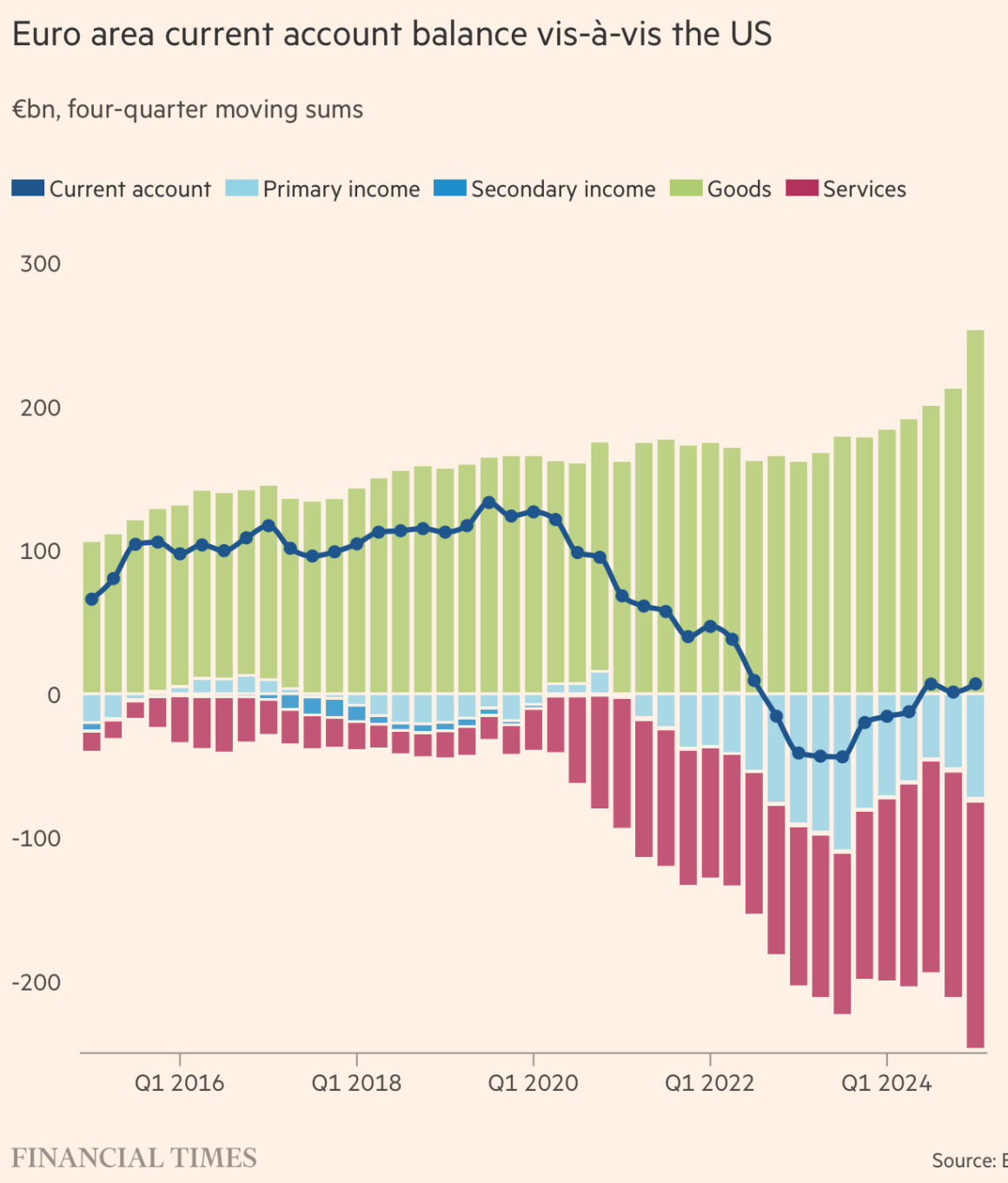The European Union and Japan are fighting the same battle.
The tariff is the same (15%), the exception on steel and aluminum is identical at 50%, the market is opening up more to American companies and Europe is committed to investing 600 billion dollars. Japan was at 550. For the moment we do not have the key to the distribution of profits from these investments (in the case of Japan it is 90% for the US). The Europeans will also buy 750 billion of energy over the next 3 years (mainly LNG which takes Europe away from its climate objectives) and spend lavishly on US military equipment.
In “The American Trap” I mentioned the rest of the world’s dependence on American consumers. The EU and Japanese agreements reinforce this idea. To ensure they remain dependent on the American market, Europeans and Japanese are willing to pay an exorbitant tax that is based on nothing other than the risk of cutting themselves off from the US market. (The idea of the paper was to say that the global cycle had long since become dependent on the US consumer, such that the macro impulse depended on them. Once this situation was well established, increasing customs duties traps the rest of the world, which must pay to maintain its cyclical dynamics.)
Europe is so afraid of cutting itself off from the United States that the negotiations only concern goods and not all goods and services for which trade is balanced. Europe will therefore not give itself the capacity for a form of technological independence since the imbalance in services is largely linked to technology.

This means that Draghi’s hope of investing massively to stabilize the technological lag compared to the Americans is now just an idea, a dream that has passed. The ability to generate strong income dynamics has been a pipe dream. Income dynamics will become a real power struggle in Europe since the pie is not going to grow significantly. It will have to be distributed between the active and the inactive, and also among the active. The social dynamics will be interesting but very dangerous.
So, indeed, everyone is happy to have an agreement because it reduces uncertainty and it could have been worse. That’s true, but now the increased dependence on the United States is probably worse in the medium and long term.
It’s a sad day for Europe, where everyone has defended their corporate interests (my car, my chemicals, etc.) to the detriment of a common choice. We can clearly see here the impact of the fragmentation of Europe denounced by Enrico Letta. There are no European champions, but national champions who hide behind their governments. Europe will be less of a dream, and we will have to mobilize to keep the idea alive.


